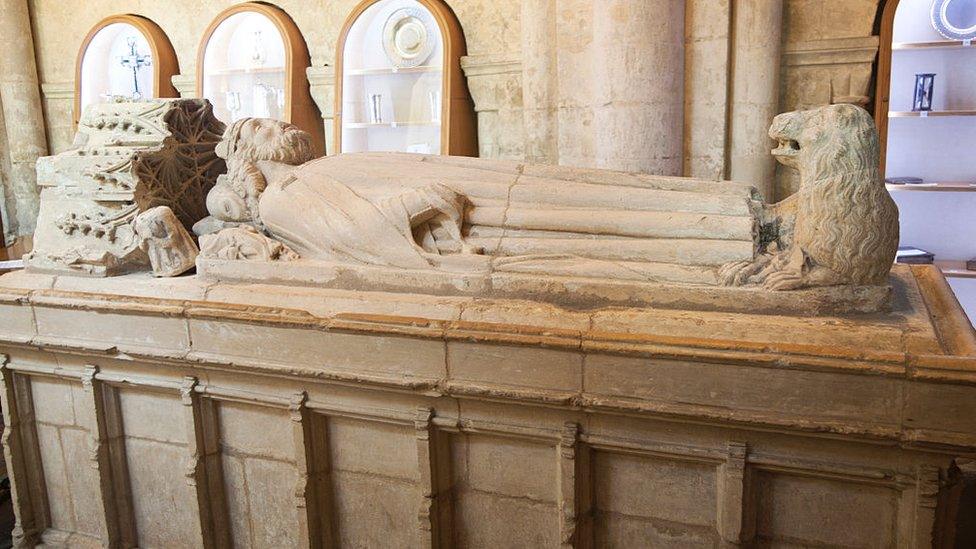Historian seeks recognition for first English king
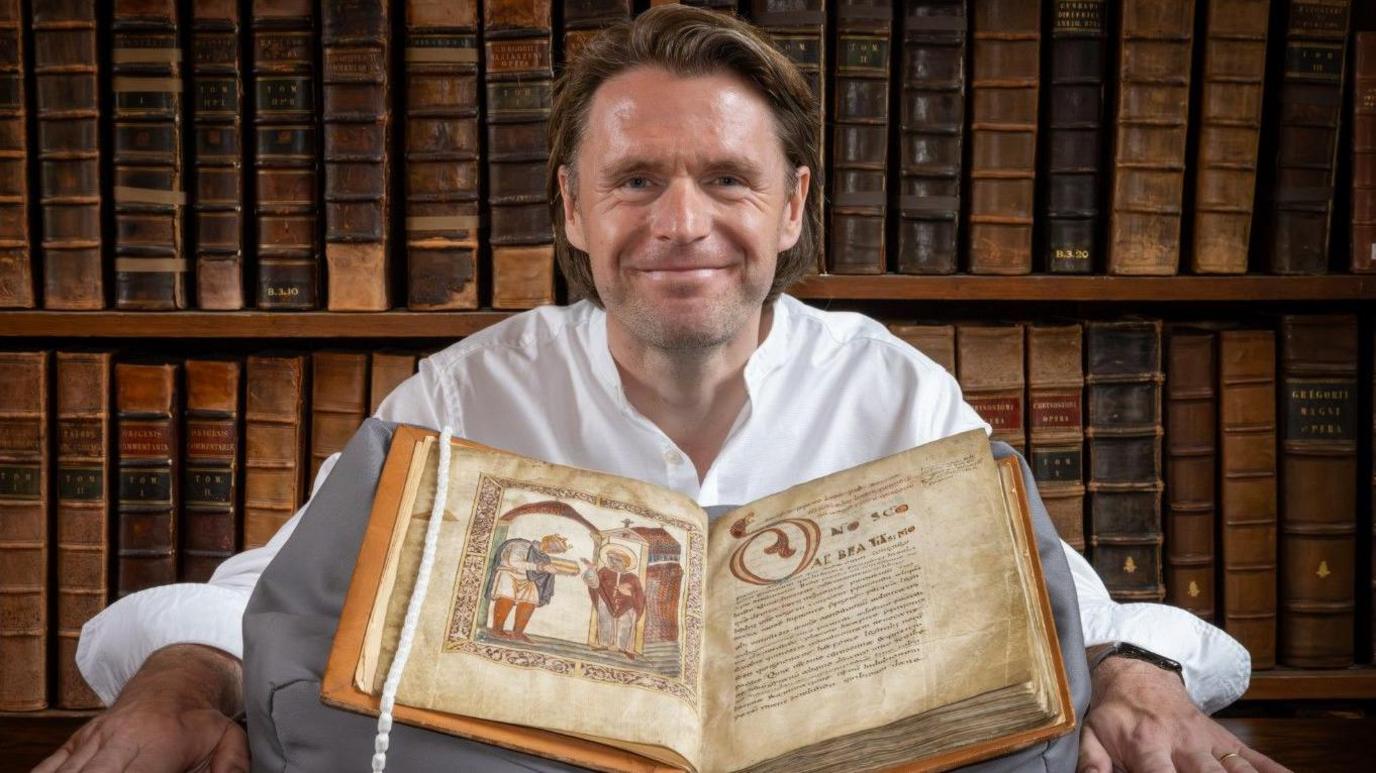
David Woodman with a 10th Century manuscript that shows Aethelstan's head bowed as he stands before Saint Cuthbert
- Published
A University of Cambridge academic has joined calls for greater recognition of the first king of England.
Aethelstan ruled England from 927 AD to 939 and united the kings of Wessex, Mercia, Northumberland and East Anglia/Danelaw under a single crown.
He was also king of the Anglo Saxons from his coronation in 925, and was buried in Malmesbury Abbey in Wiltshire.
David Woodman, a professor of history at Cambridge University who has written a new book about the king, said: As we approach the anniversaries of Aethelstan's coronation in 925 and the birth of England itself in 927, I would like his name to become much better known. He really deserves that."
Aethelstan was the grandson of Alfred the Great and in 929 he conquered the last Viking kingdom, York, at the Battle of Brunanburh, making him the first Anglo-Saxon ruler of the whole of England.
He died in Gloucester in 939 and was succeeded by his half-brother Edmund.
Woodman, from Robinson College, said: "There has been so much focus on 1066, the moment when England was conquered.
"It's about time we thought about its formation, and the person who brought it together in the first place."
Prof Woodman said he blamed a lack of public relations for this.
"Aethelstan didn't have a biographer writing up his story.
"His grandfather, Alfred the Great, had the Welsh cleric Asser to sing his praises.
"And within decades of Aethelstan's death, a wave of propaganda ensured King Edgar became famous for reforming the church. This completely overshadowed Aethelstan's earlier revamping of learning and religiosity."
Edgar was the son of Aethelstan's brother Edmund, was the great-grandson of Alfred and became king of all England in 959.
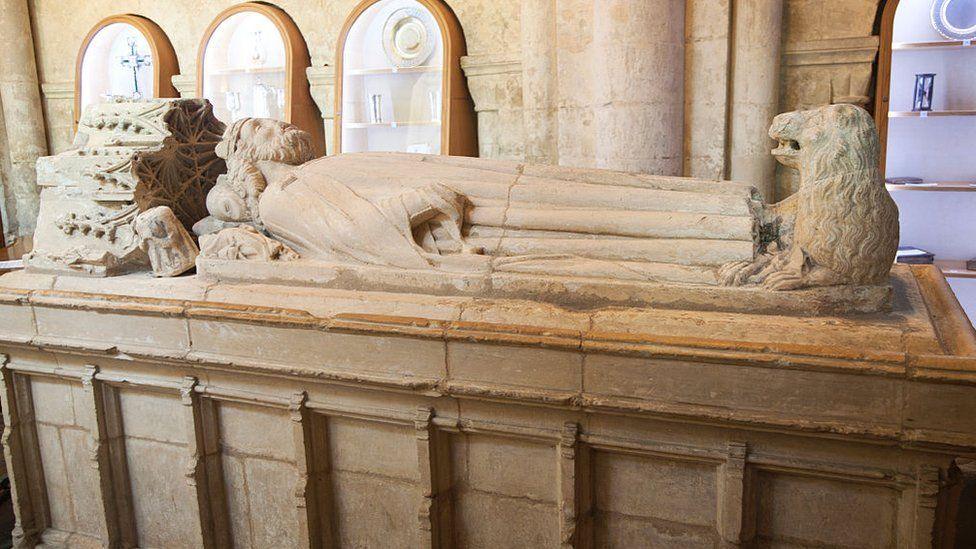
King Aethelstan's bones were buried at Malmesbury Abbey in Wiltshire
Prof Woodman said some historians dismissed Aethelstan's status as England's first king on the basis that the kingdom fragmented soon after his death in 939 and the focus instead shifted to Edgar.
"Just because things broke down after Aethelstan's death doesn't mean that he didn't create England in the first place," he said.
"He was so ahead of his time in his political thinking, and his actions in bringing together the English kingdom were so hard-won, that it would have been more surprising if the kingdom had stayed together.
"We need to recognise that his legacy, his ways of governing and legislating, continued to shape kingship for generations afterwards."
He added Aethelstan brought England together just as parts of continental Europe were fragmenting.
"Nobles across Europe were rising up and taking territory for themselves.
"Aethelstan made sure that he was well placed to take advantage of the unfolding of European politics by marrying a number of his half-sisters into continental ruling houses."
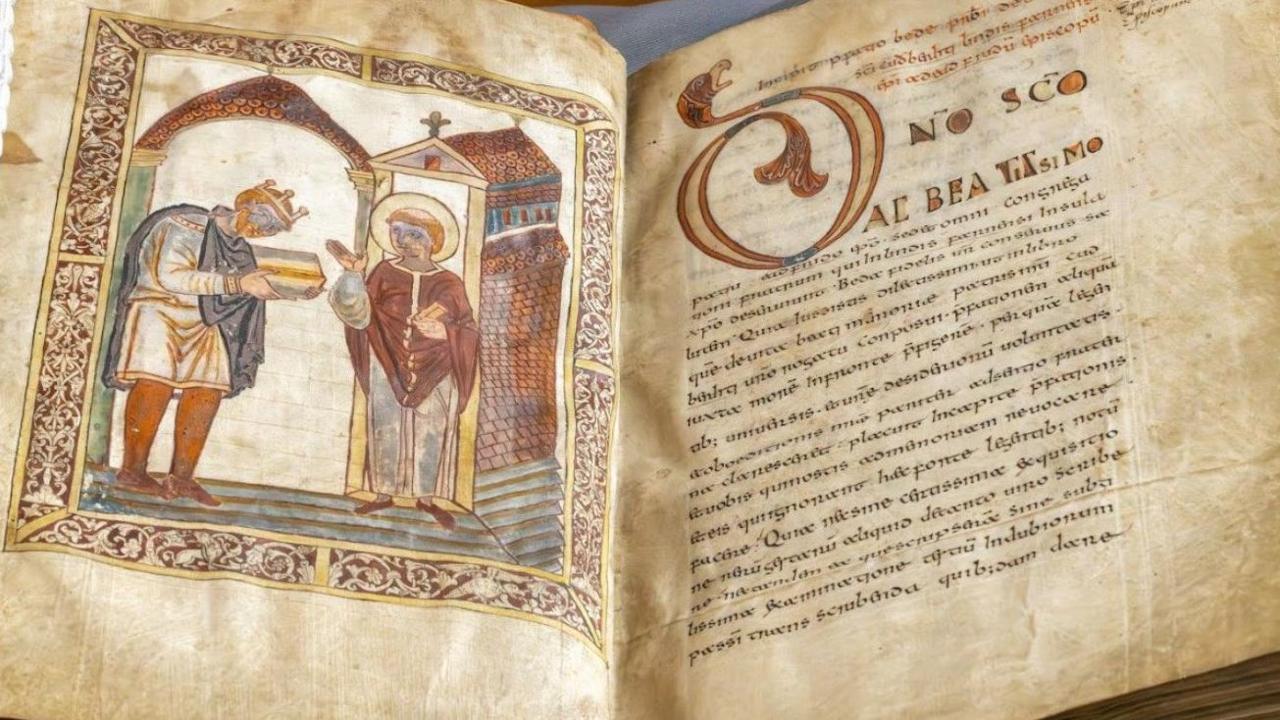
The 10th Century manuscript shows the king and a saint
Prof Woodman, together with other historians including Tom Holland and Michael Wood, has been campaigning for greater public recognition of Aethelstan's creation of England in 927 AD.
Get in touch
Do you have a story suggestion for Cambridgeshire?
Follow Cambridgeshire news on BBC Sounds, Facebook, external, Instagram, external and X, external.
Related topics
- Published9 June 2024
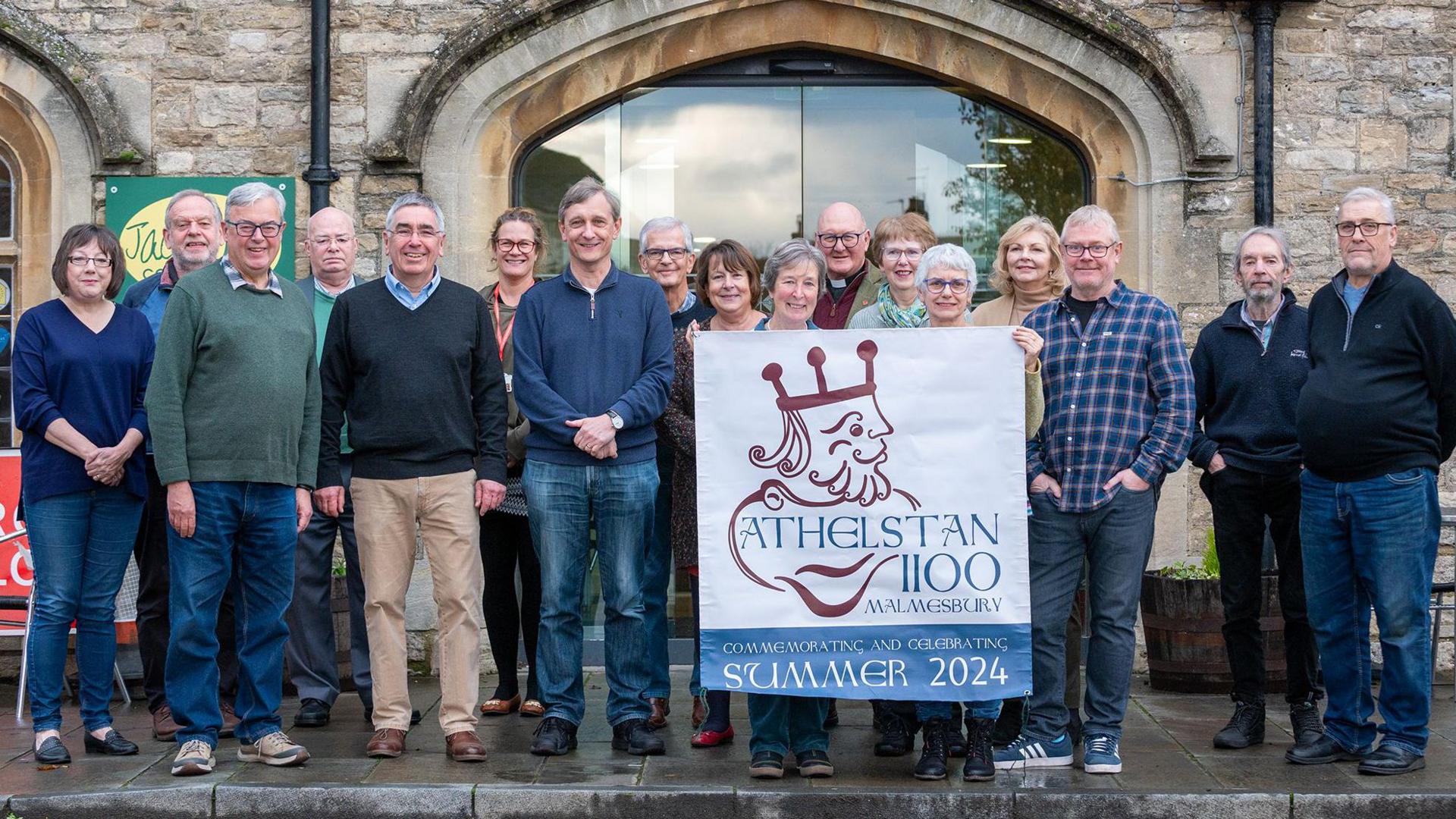
- Published6 May 2021
